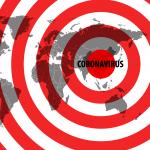International sanctions risk hindering an effective and unified global response in tackling COVID-19 around the world, irrelevant of the foreign and security policy considerations they seek to address or the international norms they seek to reinforce. Countries under the world’s strictest sanctions regimes will struggle to cope with knock-on effects of the pandemic as they already suffer from a series of unique challenges with serious humanitarian consequences. These include financial sector "de-risking"; hindered trade in food and medical goods; obstacles to scientific collaboration; withdrawal of humanitarian and health workers (the "chilling effect"); fragile or crippled healthcare systems, and political barriers preventing effective cooperation across borders. This risks catastrophic impacts, not only for the countries in question where some of the most complex, overlapping sanctions regimes are imposed –including Iran, North Korea, Venezuela and Syria– but also for countries in neighbouring regions, which could continue to bear the brunt of increased flows of refugees. It also risks placing additional, unsurmountable strain on advanced economies, not least in health terms, through a risk of resurgence of the virus. This webinar outlines some of the key challenges at play; explores options for sanctions easing, and describes other innovative ways in which some of the worst impacts could be mitigated.
Speakers
- Gilles Carbonnier, Vice-President, International Committee of the Red Cross
- Emanuela-Chiara Gillard, Senior Research Fellow, Oxford Institute for Ethics, Law and Armed Conflict; Associate Fellow, Chatham House
- Thomas Biersteker, Professor of International Relations and Political Science; Director of Policy Research, Graduate Institute, Geneva
- Edwina Thompson, Founder of Amanacard; Independent Expert to the United Nations
- Moderated by Erica Moret, Senior Researcher, Global Governance Centre; Chair of the Geneva International Sanctions Network






